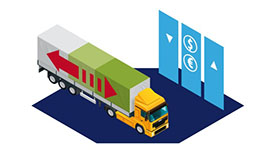



 Tech & IT
Tech & IT
 Business
Business
 Coding & Developer
Coding & Developer
 Finance & Accounting
Finance & Accounting
 Academics
Academics
 Office Applications
Office Applications
 Art & Design
Art & Design
 Marketing
Marketing
 Health & Wellness
Health & Wellness
 Sounds & Music
Sounds & Music
 Lifestyle
Lifestyle
 Photography
Photography
More Learnfly
Business Solution Become an InstructorRobotic Process Automation (RPA) involves using software robots or "bots" to automate repetitive and rule-based tasks within business processes, enhancing efficiency and reducing manual effort.












Learn more topics in various categories at one place. Explore unlimited courses in other categories and up-skill yourself today.

 Jazeb Akram
Jazeb Akram 4.2 769620 Beginner Level

 John Hedengren
John Hedengren 4.1 568094 All Level

 Ranjan Pandey
Ranjan Pandey 4.1 345826 All Level

 Pieter Vliegenthart
Pieter Vliegenthart 4.6 99978 All Level

 Muhammad Ahsan Pervaiz
Muhammad Ahsan Pervaiz 4.2 99679 All Level

 Jerome P.
Jerome P. 4.8 99433 All Level

 Senol Atac
Senol Atac 4.9 99041 All Level

 Vikas Munjal
Vikas Munjal 4.8 99008 Beginner Level

 Chandramouli Jayendran
Chandramouli Jayendran 4.9 98560 Beginner Level

 Yoann Bierling
Yoann Bierling13 Lectures All Level

 Yunikee Learning
Yunikee Learning20 Lectures All Level

 Yunikee Learning
Yunikee Learning14 Lectures All Level

 Maksym Rudnyi
Maksym Rudnyi20 Lectures All Level

 Janam Sandhu
Janam Sandhu9 Lectures All Level

 Deepika Misra
Deepika Misra31 Lectures All Level
Robotic Process Automation (RPA) is a technology that uses software robots or "bots" to automate repetitive and rule-based tasks within business processes. These bots mimic human interactions with digital systems, improving efficiency and reducing errors.
RPA enhances operational efficiency by automating routine tasks, allowing employees to focus on more complex and strategic activities. This technology performs tasks quickly, consistently, and with minimal errors, leading to increased productivity.
RPA finds applications across various industries, including finance, healthcare, manufacturing, and customer service. It is particularly impactful in industries with high volumes of repetitive tasks that can be automated to streamline processes.
Integrating RPA with AI and machine learning enables automation of more complex tasks that involve decision-making and data analysis. This advanced combination allows systems to adapt, learn, and make intelligent decisions, expanding the scope of automation.
While RPA offers significant benefits, challenges can arise during implementation. Issues such as process complexity, data security, and change management need to be carefully addressed to ensure a successful and sustainable RPA deployment.





